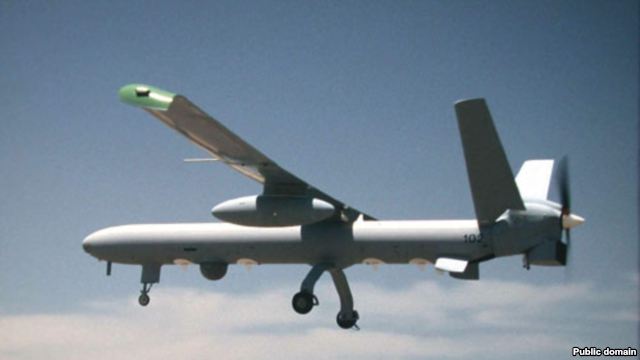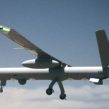
Azerbaijan’s Arms Deal with Israel Raises Caucasus Tensions
Publication: Eurasia Daily Monitor Volume: 9 Issue: 47
By:

Already in 2012, two Iranian terrorist plots against Azerbaijan have been exposed, Moscow has substantially reinforced its garrisons in the Caucasus in expectation of a war involving Iran by this summer, and Russia has also warned Georgia against hosting US troops there for purposes of conducting such a war. These extraordinary moves testify to the importance the Caucasus has in conjunction with the possibility of a war against Iran. Therefore the recent announcement of a large-scale Israeli arms sale to Azerbaijan only adds to the high degree of tensions there.
In late February, Israeli officials confirmed a deal worth $1.6 billion to sell Azerbaijan drones, anti-aircraft and missile defense systems (Jerusalem Post Online, February 27). Along with these weapon systems, many trainers, technicians and advisors will also go to Azerbaijan, a standard practice in large-scale arms transfers (Intelligence Online, February 23). Naturally Iran, which has long held a grudge against Azerbaijan for its pro-Israeli policies, called this sale a provocative anti-Iranian one that aimed to heighten the tensions between Baku and Tehran (Jomiuri-ye Eslami Online, February 29). Iranian diplomats also warned against Israel using Azeri territory as a “Trojan horse” for supposed “terrorist acts” against Iran (Fars News Agency, February 28). Of course, these articles conveniently omitted to mention that Iran’s efforts to overthrow the Azeri government, launch terror attacks against it and against Israeli diplomats there lay at the bottom of the existing tensions. But these sales have little to do with Iran’s charges of Israeli use of Azerbaijan as an intelligence base against Iran, if indeed that is the case. Neither is it true that these are not weapons for a regional war as the Babi Xabar newspaper charged. These are not weapons that are going to be supposedly used by Washington or Jerusalem against Tehran (BBC Monitoring of Iranian Press, March 1).
Although the connection to Iran is a natural one given the high degree of tensions in the area, and, as we shall see, the deal has a political significance beyond the already positive Azeri-Israeli relationship. Moreover, the claim that these weapons are primarily intended for use against Iran does not hold up to scrutiny. Experts know that multi-billion dollar arms deals like this one take months, even years, to negotiate. It is simply impossible to negotiate and conclude such a deal in a matter of weeks unless there are deep strategic connections that pre-exist the deal; and that was not the case. Thus Azeri officials are almost certainly correct when they deny that the intention here was directed against Iran.
Indeed, Azeri officials are saying openly that these systems are intended for potential use against Armenia in any effort to regain the “occupied lands” taken by Armenia in the war over Nagorno-Karabakh. Azeri Foreign Ministry Press Officer, Elman Abdullayev even stated that twenty percent of its territory is occupied, thus it has the right to use opportunities to free its land (Interfax, February 29; APA News Agency, February 29). So the real danger is that these weapons, once Azerbaijan learns how to use them properly, may encourage those elements in the Azeri government who think they need to start a conflict with Armenia to focus international attention on the Nagorno-Karabakh issue to believe that they now have the means to do so successfully. Since there are such elements in the government, this is the real concern generated by these sales, not the highly unlikely prospect of Azerbaijan attacking Iran or letting others use its territory. While undoubtedly there is and will be intensified intelligence cooperation between Azerbaijan and Israel, that alone will not cause problems unless Iran feels the need to strike at Azerbaijan.
At the same time these arms sales are definitely geopolitically significant, though this may involve Russia as much as Iran. Just as Russia fears that a US or Israeli strike against Iran may trigger Iranian retaliation in the Caucasus, Georgian reports indicate that the forthcoming Kavkaz-2012 exercise envisages a scenario where the Russian forces in Armenia are cut off from Russia due to war in the area, possibly connected with a strike against Iran and Iran’s ensuing retaliation. Indeed, Russian press reports indicate that Moscow expects such a US strike against Iran with ensuing complications in the Caucasus by the summer (Georgia Today Online, February 24; Nezavisimoye Voyennoye Obozreniye, Online December 15, 2011). Thus, as other sources indicate, the deal cements an Israeli-Azeri alliance in the Caucasus (Intelligence Online, February 23).
But beyond that alliance the forecasting company Stratfor argues that this deal was also coordinated between Washington and Jerusalem and may ultimately involve the resumption of Israeli arms sales to Georgia. Washington is unwilling to provoke Russia directly but does want to register its unhappiness with the Russian position on Syria, and Damascus is no longer in a position to buy Russian weapons, an act that could have deterred Israel from selling weapons again to Georgia (www.stratfor.com, February 29). These subtle moves and countermoves show that the Caucasus is still a geopolitical prize and the object of intense if partially concealed maneuvering between Washington and Moscow and more local actors like Israel and Iran. Whatever occurs in regard to Iran is not likely to eliminate the tensions between Baku and Tehran or the fact that this area remains a cockpit of conflict between Washington and Moscow.




